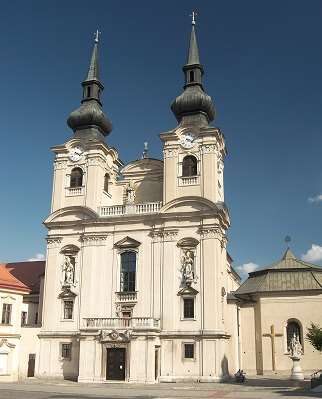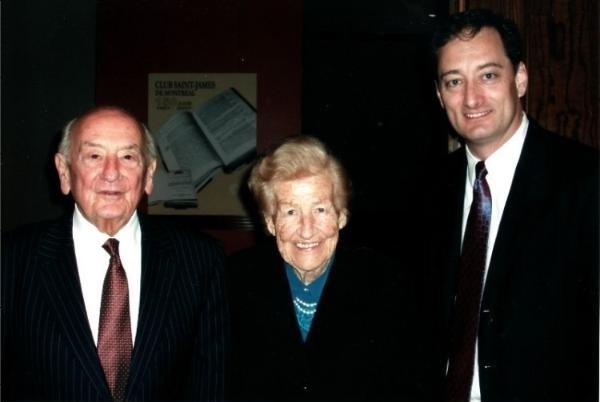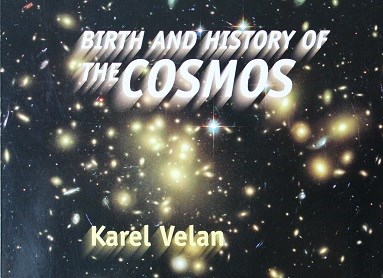A.K. Velan: A Universal View of an Earthly Industry
Without these ubiquitous objects, we would have no electricity, no oil, no gas and no water.
#water-wastewater
One of the people we can thank for many of the advancements in valves is a long-time VMA member, A.K. Velan. A colorful inventor and entrepreneur, A.K. recently celebrated his 95th birthday at Velan head office in Montreal, Quebec, and VALVE Magazine took the opportunity to chat with him about his life and his long career in the industry.
Originally from Ostrava, which is now in the Czech Republic, Velan spent many of his early years in the town of Žywiec in Polish Silesia. He described the now vanished world in which he grew up. Radio was limited in the 1920s and 1930s to the elite few, so leisure time was spent at the movies, reading books, and visiting friends and neighbors. Velan became interested in sports early in his life, and began skiing when he was just five-and-a-half years old. He recalls learning to play tennis: “There was a large pulp and paper mill in town called Solaris, and the owner was Czech. Because we were fellow Czech citizens, my father arranged with him that I could play tennis at the local club, which was a beautiful place right near the river and had four or six courts. It was really for rich people and, while we were not rich, I was allowed to play there. Those were happy times.”
Velan eventually entered a highly-regarded Polish boys’ high school named after Nicolaus Copernicus. Students were taught physics and mathematics. “Even though by nationality I was different from most of the children there, I still participated in many cultural events. I learned to speak Polish well, too,” he remembered fondly. “The school celebrated its 100th anniversary in 2004, and I was invited as a guest of honor!”
Early Interest in Science and Physics
Velan’s lifelong passion for physics began when he was 12, even though the field was quite limited at the time. This was also around the time that he developed his lifelong interest in astrophysics and began to entertain his own ideas about the birth of the universe.
Despite his passion and interest, though, when Velan arrived at Brno, Czechoslovakia, to attend university, he discovered the university would not recognize his Polish high school diploma. They would allow him to enter the polytechnic school, but only on the condition that he also complete a Czech high school diploma by studying subjects, such as French, that were not on the Polish curriculum. As luck would have it, Velan won a scholarship from the Institute Denis to practice engineering for two months in Aix-les-Bains, France, at the ABB pulp and paper mill. This total French immersion, he says, got him into pretty good shape for his French exam. His academic career at this time also helped to clarify his ambitions.
Velan recalled, “My idea was to study engineering and astronomy. So, when I was taking my first year of engineering, I followed two courses on astronomy, but it seemed to be too complicated. Also, some friends and a professor advised me that mechanical engineering and astronomy didn’t really work together, so I abandoned the idea of combining the two. But I always wanted to study mechanical engineering above all.”
The War Years
He pursued his studies and in the process met his wife, Olga, at a cross-country ski race. The couple recalls a beautiful, quiet life, as they courted and went to University. However, in 1939, Germany occupied the “Sudetenland,” an area of Czechoslovakia inhabited mostly by ethnic Germans. That was followed by the closing of universities in November.
Velan remembers the event vividly. “We were at the theatre and at intermission somebody announced on-stage that all the universities were closed! Unbelievable, because I was in the finishing stages of getting my diploma, so it was an unbelievable statement. But not only that, so many were arrested, and so many were killed! This changed our life. I went to Prostejov to look for a job and returned to Brno each weekend to my family.”
Despite the shadows and uncertainties of war, Velan and Olga married in February 1941 in the 300-year-old Zábrdovice church. “Sixty-four years later we revisited [the church],” he recalls, “and I had tears in my eyes.”
Velan had selected Canada as his future home of choice and he moved with his young family to Montreal in 1949. (Tom Velan, current CEO and president of the company, was born in Montreal two years later.) Confident that his invention would fulfill the title, Velan went on a six-week trip to the U.S. and visited the leading distributors of steam traps in every state. “I came back with a complete sales organization and orders for 42,000 steam traps, and we manufactured them at our first plant, in Montreal.”
Building a World-Wide Company
With the steam trap gaining respect and orders and his distribution network established, Velan did not rest on his laurels. From the beginning he was keen on building a worldwide business, and though he knew that he wanted to be based in North America, Velan was a pioneer in globalization. As early as 1954, he travelled to Japan and other areas of the world to establish a distribution network. He also was not hesitant to jump in when challenges presented themselves.
Velan shared an interesting story about the first nuclear submarine in the U.S. “It was back in the 1950s. Westinghouse built the reactor, and they sent inquiries out to manufacturers for bellows seal valves. They didn’t exist at that time.” Velan chuckled at the memory. “I got the inquiry, but I didn’t know what the English word ‘bellows’ meant in Czech. So I had to find out what it was. We then found a list of manufacturers in the U.S. and found there were four bellows companies. But the valve manufacturers had no bellows seal globe valves. So I had to invent it. I designed it with some of our company engineers.”
At the time, the company had just a few engineers, but Velan took a few of them with him into the tool room and produced a prototype for Westinghouse. “Within 6 weeks, I went to Pittsburg with the valve and one man from the company, and we presented designs and prototype,” Velan remembers. “The navy tested it for six months or so and gave us the order for the entire ship. Soon afterward, in about 1959 or 1961, we got an order for 8,500 bellows seal valves for a uranium enrichment plant in Alabama, which still exists.”
It was an auspicious start for Velan’s entry into the nuclear field, an arena in which the company has long had a presence. Of the 450 nuclear power stations around the world, both operating and those under construction, Velan is involved in 398. Velan supplies North American and French made valves for the plants in China. Velan elaborated, “We have a very large company in France, Velan SAS. We own 100% of the company, and they have a multi-million dollar backlog for nuclear valves in China.”
On a personal level, Velan has received many worldwide patents for valves during his lifetime, including several in the U.S. The latest was in 2003 where the company got a U.S. patent for its Power Ball valve. But one of his company’s biggest achievements, according to A.K. Velan, is that it is still the only company in the world that produces low-emission valves with one-piece closed die body forgings up to 24 inches.
Like most other companies, Velan Valve has moved some of its manufacturing offshore, but it is still primarily a North American company. “We only have about 19% of our employees in Asia,” said Velan, “and of our 16 plants, five are in North America and the majority of employees are here.”
Well-Deserved Recognition
This could perhaps be one of the reasons Velan has received so many awards from his adopted country. They include The Canada Export Award from the Canadian Department of International Trade, given in 1991, to the latest, in 2005 when he received the highest civilian honor in Quebec, Canada: The National Order of Quebec and the honorable title, “Chevalier,” for conspicuous achievements in his field.
While Velan is no doubt an astute businessman, his interests extend far beyond planet Earth. His lifelong interest in astrophysics and cosmology culminated in Plenum’s publication of his book The Multi-Universe Cosmos in 1992, and Birth and History of the Cosmos, in English, French and Chinese in 2000. In 1995, the senior Velan shared his theory of the origins of the universe at the prestigious Institute of Astronomy at The University of Cambridge in a presentation called, “The Myth of the Singularity Big Bang Theory and the Multi-Universe Cosmology Model.”
This inventor cannot help but look for ways to improve products, and he says his company is continually concentrating on designing new valves and improving production processes to reduce cost and delivery times while doing its utmost to protect the environment. “We are committed to research and development, and to collaborating with local universities and think tanks to do important research,” said Velan. “That’s how we keep innovating and growing.”
When asked if building a successful company and gaining wealth was something about which he was proud, Velan responded this way. “When I was young, I studied the theory and life of Albert Einstein. I liked what he said. I liked his philosophy: The worth of a man stands in his capacity to give, not in his capacity to take. Who you are, your successes in life, what others recognize are important if you share. Otherwise, all this is worthless.”
Wise words shared by an interesting man. We in the valve industry are fortunate to have imaginative inventors like A.K. Velan devoting their lives to this field.
Kate Kunkel is senior editor of VALVE Magazine. You may reach her at kkunkel@vma.org.
RELATED CONTENT
-
Check Valve Installation Considerations to Maximize Process Performance
Key considerations in successful check valve performance.
-
Knifegate Valve Maintenance and Repair
Knife gate valves are used to provide isolation in various applications including oil sands slurries, pulp stock, waste water and power generation.
-
Which Gate Valve is Best for Today's Waterworks Systems?
A historical perspective may provide the answer.













 Unloading large gate valve.jpg;maxWidth=214)